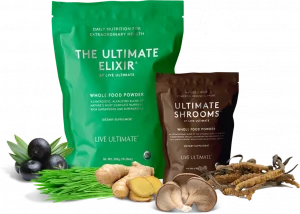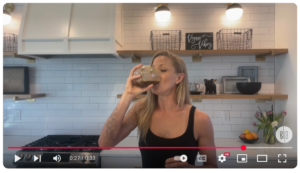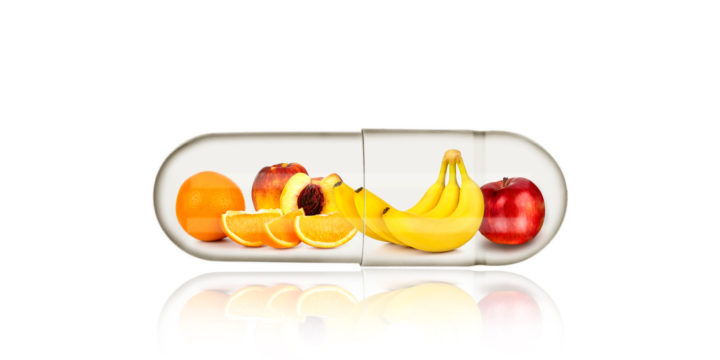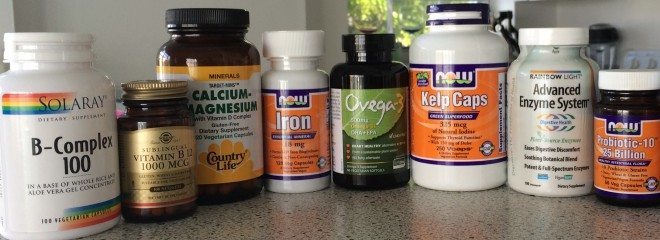If you’ve been following me for any length of time, you know how passionate I am about helping people break free from unhealthy habits and create a sustainable, vibrant lifestyle. For me, it’s all about getting to the ROOT of why we feel stuck—whether it’s emotional eating, yo-yo dieting, or patterns that prevent us from becoming the healthiest versions of ourselves.
That said, sometimes it’s the small, consistent habits that make a big difference. And today, I’m sharing one of my favorite health hacks—something so simple you can incorporate it into your routine in just 30 seconds a day.
It’s what I consider my “Greens Insurance,” and have nicknamed it “Magical Morning Mud.”
Why this Health Hack is Legit
There’s a bunch of different super foods/greens powders out there, but there is ONE that absolutely stands above all the rest, which is why I’ve been using it myself for around eight years.
It’s Live Ultimate’s Ultimate Elixir.
It’s packed with whole foods, adaptogens, probiotics, and enzymes, ground into a powder.
It contains ZERO sweeteners (not even stevia or monk fruit extract) which means YES – it does taste VERY GREEN, and it’s a bit of a challenge to get down I’m not gonna lie (and I happen to LOVE the challenge)
AND
My clients who use it and I are addicted in the best way possible!
We can literally feel it doing such good once inside our bodies, with a noticeable hit of sustainable energy and mental clarity throughout the day.
More on Why Ultimate Elixir Is My Go-To
This isn’t just another trendy greens powder. Here’s what makes Ultimate Elixir so special:
- USDA Organic: Packed with 25 whole-food ingredients, including adaptogens, probiotics, enzymes, and superfoods.
- No Sweeteners: No stevia, monk fruit, or artificial sweeteners—just pure, plant-based goodness. Yes, it tastes VERY GREEN, but trust me, it’s worth it!
- Sustainable Energy: It provides a noticeable boost in mental clarity and energy without the crash.
- Gut Health Support: The probiotics and enzymes help support digestion and nutrient absorption.
- Trusted Quality: Based in Miami, I know the team behind the products, have been using it myself for years, and recommend it to my clients with confidence.
How I Make It Work (Hint: A Lot of Lemon Juice Goes a Long Way!)
If you’re used to sweetened beverages, it might be an adjustment. But I’ve found that adding a generous squeeze of lemon juice balances the flavor beautifully.
Here’s my simple recipe, which I share in THIS YOUTUBE VIDEO:
- Mix 1 scoop of Ultimate Elixir and 1 scoop of Ultimate Shrooms (optional) with 10+ oz water.
- Add lemon juice to taste (I put in a big splash of organic lemon juice)
- Stir rapidly, and CHUG!
I call this my “magical morning mud” because it sets the tone for the rest of the day. It’s the perfect way to start your morning feeling refreshed, energized, and ready to tackle whatever’s on your plate (literally and figuratively).
The Power Couple: Ultimate Elixir + Ultimate Shrooms
While the Ultimate Elixir is my daily staple, I also love LiveUltimate’s Ultimate Shrooms. This adaptogenic mushroom blend is great for immune support, mental focus, and overall vitality. Together, they’re called the “Power Couple.” If you’re looking to supercharge your health routine, I highly recommend incorporating both into your life.
Why I’m an Affiliate for LiveUltimate
I only partner with companies I genuinely trust, use personally, and believe in 100%. LiveUltimate checks all the boxes for me. Their commitment to quality and sustainability aligns perfectly with my values, which is why I’m proud to recommend their products.
Your Invitation to Try at a Huge Discount
If you’re ready to make this part of your daily routine, I’ve got great news! You can get 25% off your first order and free shipping when you subscribe using this LINK and use the coupon code LU2022 (cancel anytime).
 Curious about the Ultimate Shrooms? Check out my Power Couple “recipe” HERE for an extra health boost.
Curious about the Ultimate Shrooms? Check out my Power Couple “recipe” HERE for an extra health boost.
A Simple Habit for a Healthier You
Incorporating Greens Insurance into your routine is one of the easiest ways to kickstart a healthier lifestyle. It’s not about perfection—it’s about progress and setting yourself up for success with small, sustainable habits.
So, here’s my challenge to you: Start your day with Greens Insurance for the next 30 days and see how it transforms your energy, focus, and overall well-being. You just might become addicted in the best way possible. 🥰
Here’s to a vibrant, healthy New Year—cheers! 🥂





